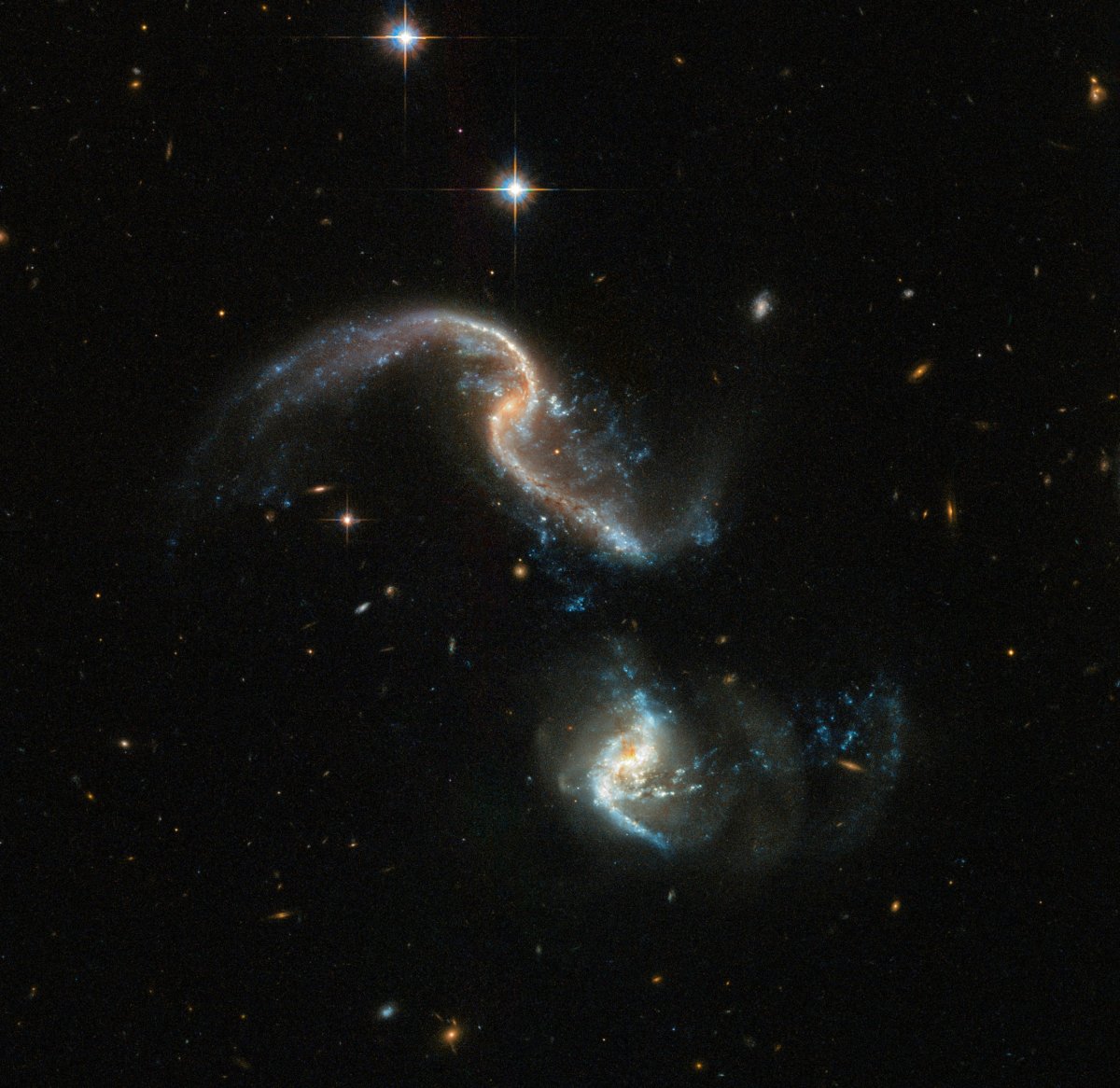Space is a messy place, full of explosions and collisions and extreme temperatures. But usually, we don't get to see the largest of these fireworks—when entire galaxies collide. That's the sight captured by this photo, snapped by NASA's Hubble Space Telescope.
The scene is unfolding about 350 million light-years away (which also means the drama began 350 million years ago) in a constellation called Cetus, which looks like a sea monster. But despite the dramatic shot, the collision has only just begun, and it will take millions of years before the galaxies completely merge.

Because the two galaxies are so close to each other and each contain so many massive stars, the upper galaxy is displaying a feature called a tidal tail, the messy stream of stars created by the gravity of one galaxy tugging at another.
That's why these two galaxies already share a name, even though they are still distinct objects. Astronomers classify systems like this as "peculiar galaxies" because some sort of interaction has caused a weird trait, like extra dust or a strange shape. Peculiar galaxies are particularly intriguing to study because they can teach us how galaxies evolve over billions of years.
Read more: Stunning NASA Juno Image Captures Sunrise and Sunset on Jupiter in One Shot
Our own Milky Way isn't immune from celestial collisions. Scientists now believe that absorbing a small galaxy is what kicked some of the Milky Way's stars out above the main disk, into a region scientists call its halo.
And there's an even more dramatic collision to come in our future: Astronomers have predicted that the Milky Way will collide with the Andromeda galaxy. But don't panic, it won't happen for another four billion years. That's plenty of time to enjoy watching other galaxies meet the same fate.
Uncommon Knowledge
Newsweek is committed to challenging conventional wisdom and finding connections in the search for common ground.
Newsweek is committed to challenging conventional wisdom and finding connections in the search for common ground.
About the writer
Meghan Bartels is a science journalist based in New York City who covers the science happening on the surface of ... Read more
To read how Newsweek uses AI as a newsroom tool, Click here.








